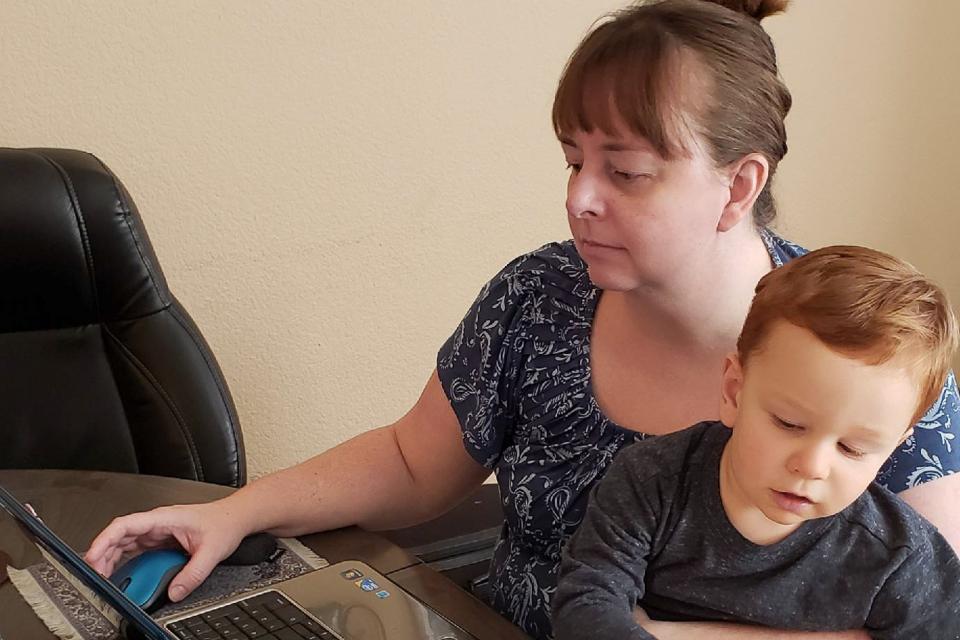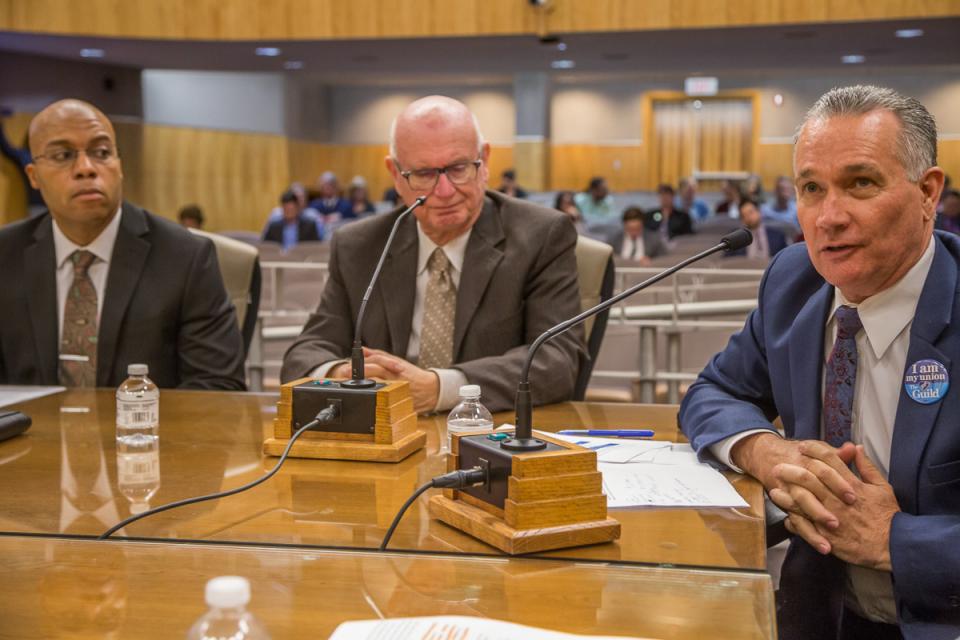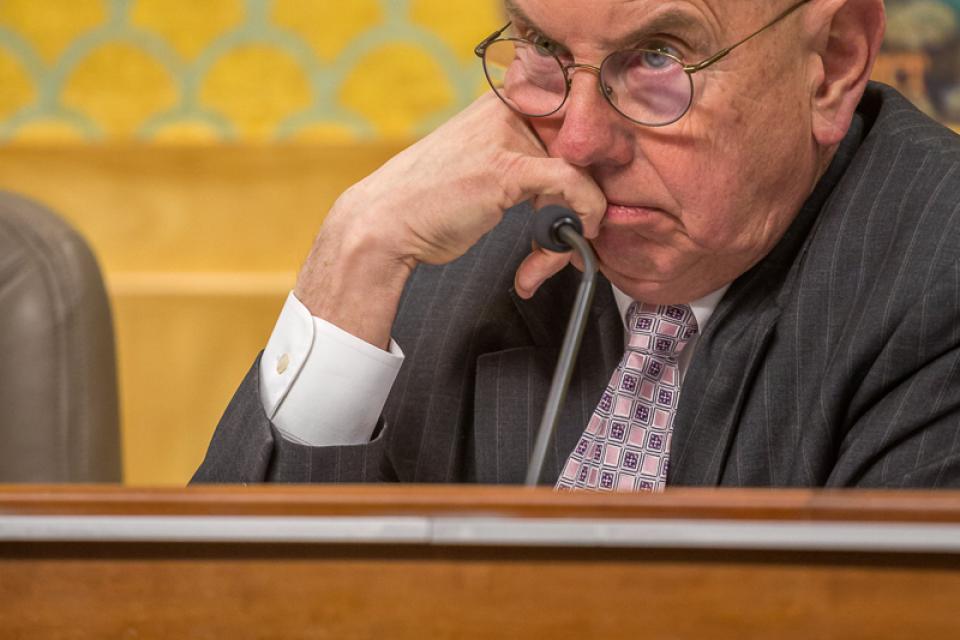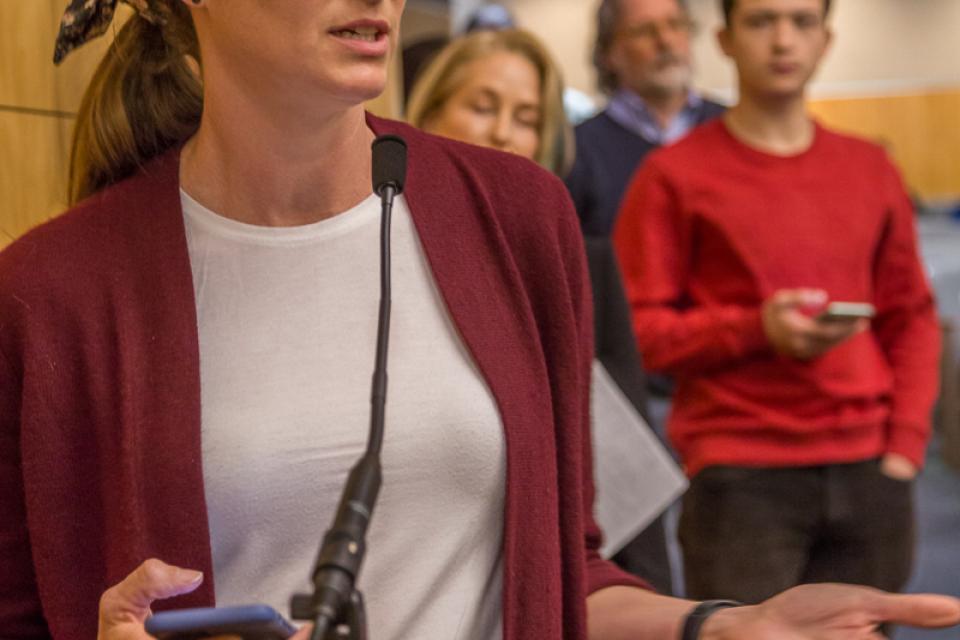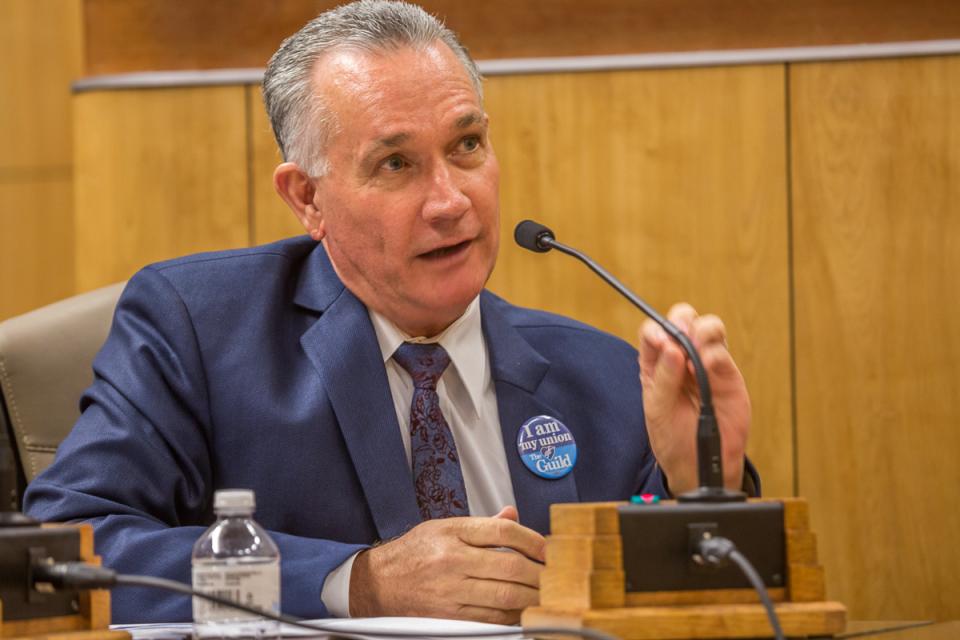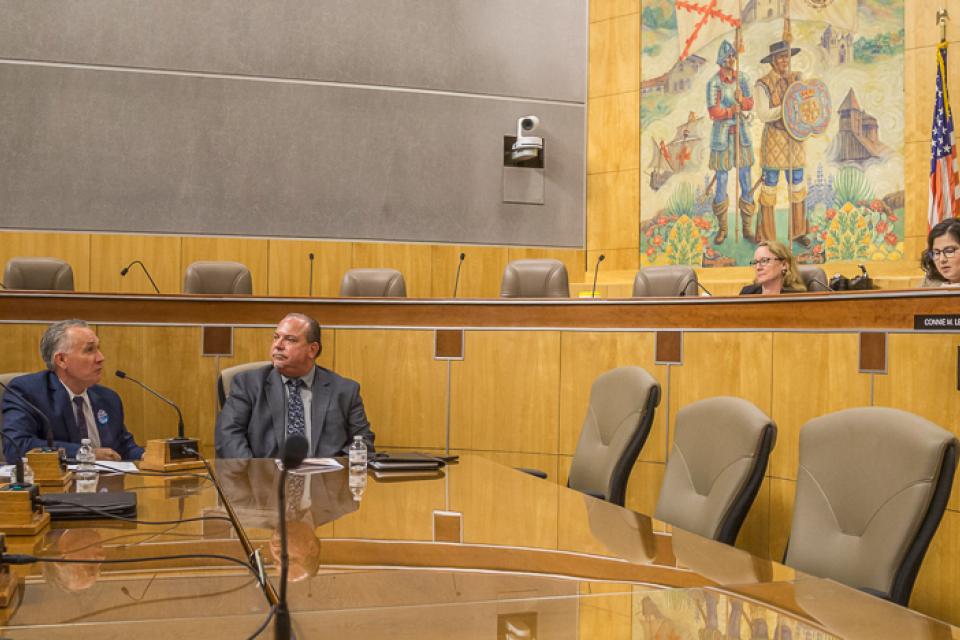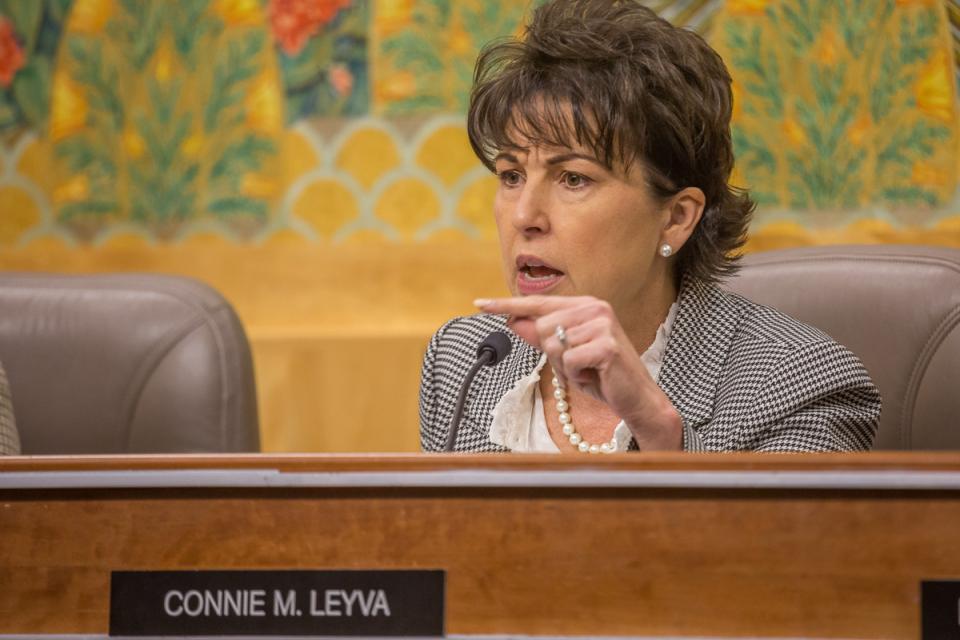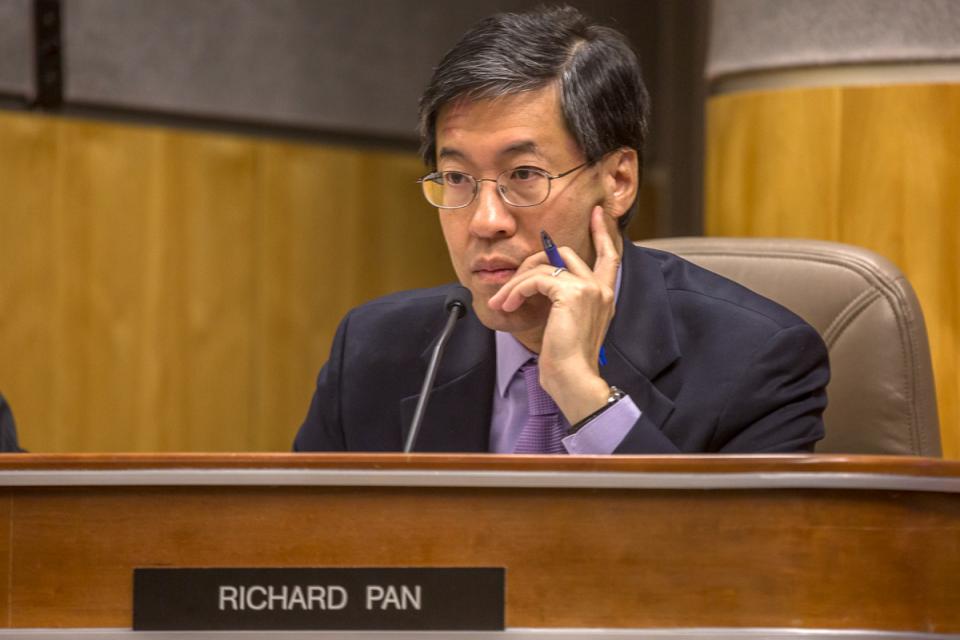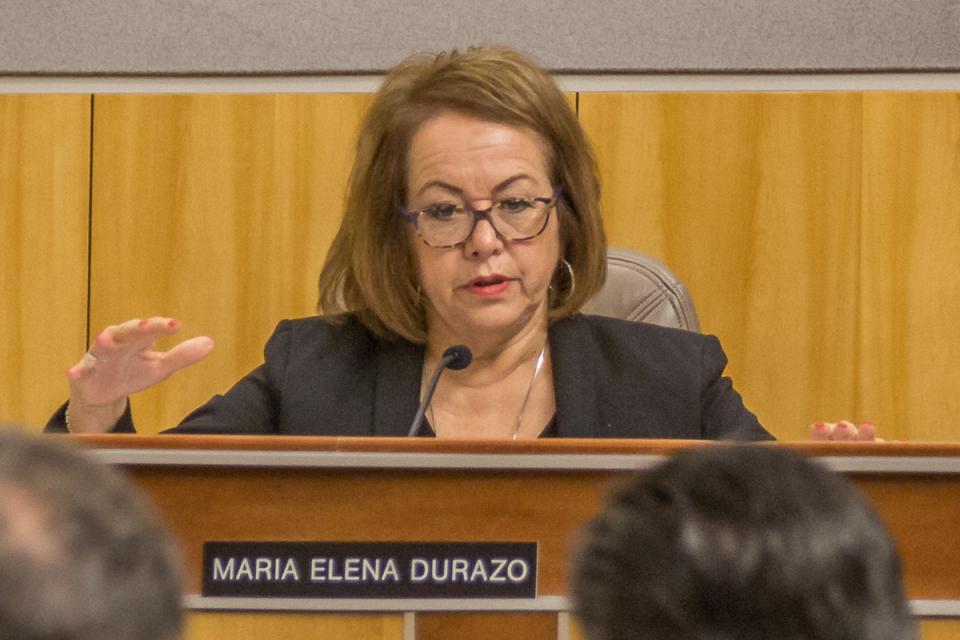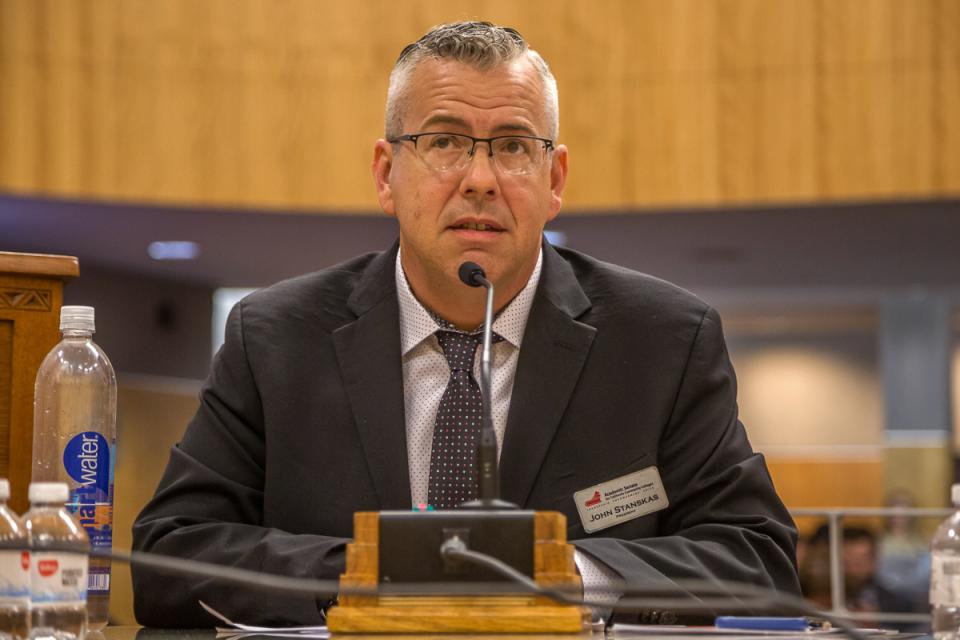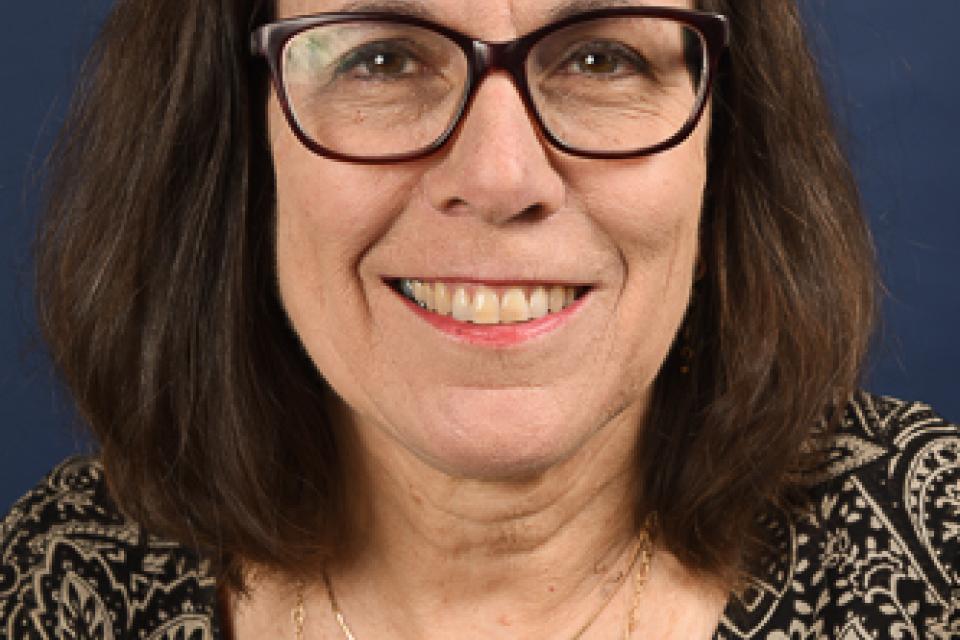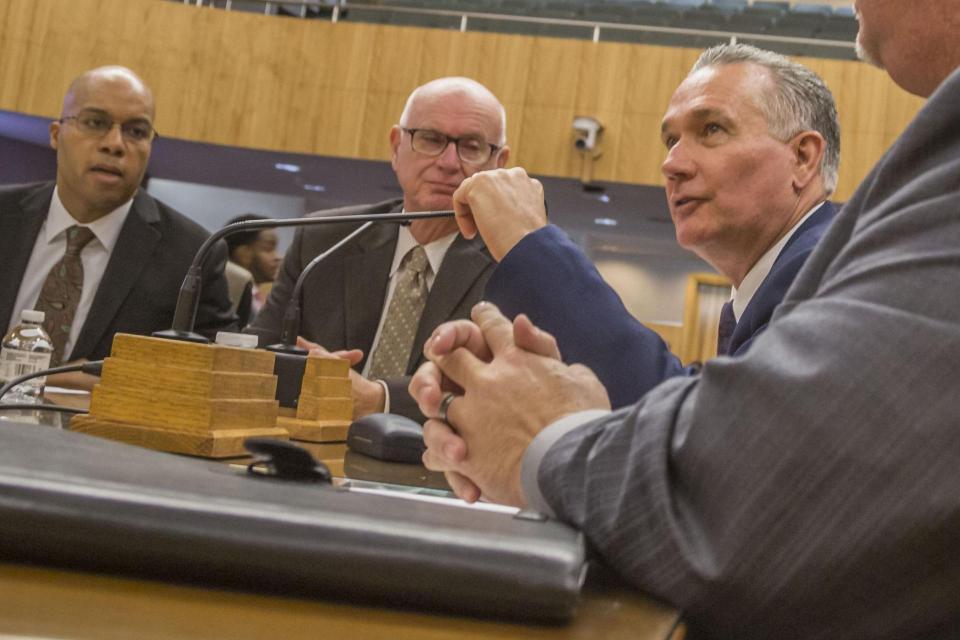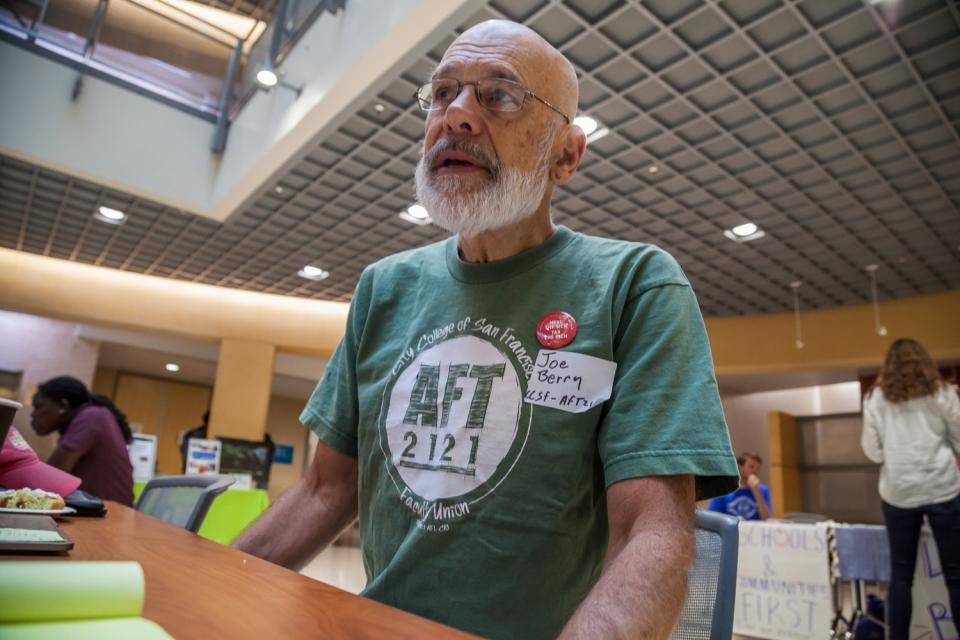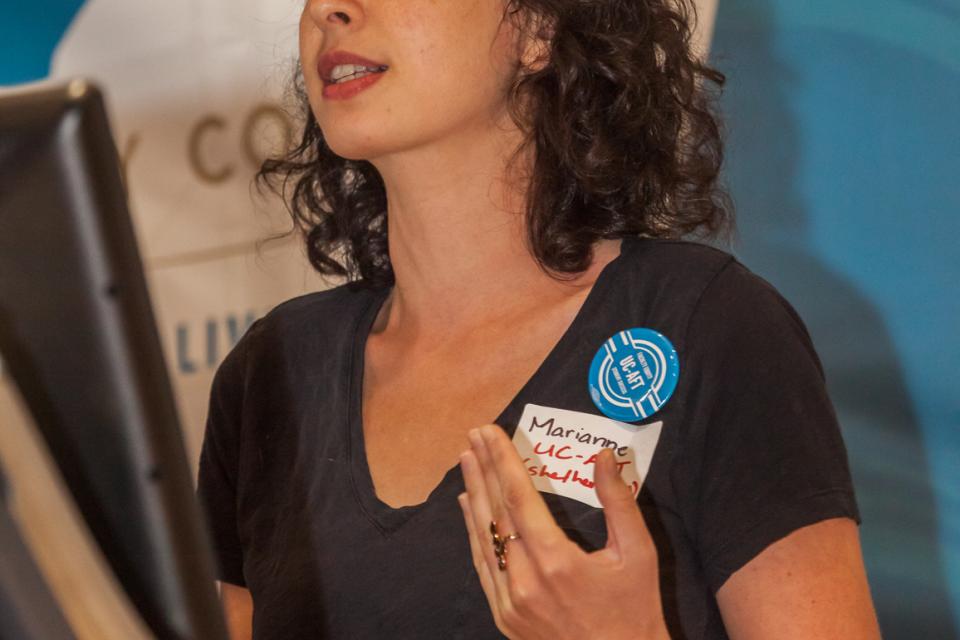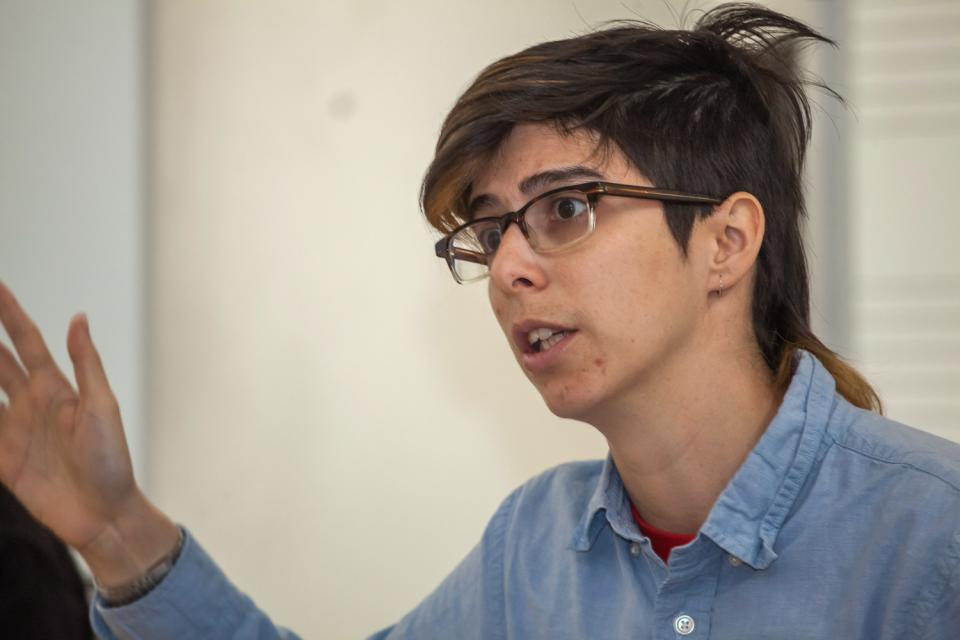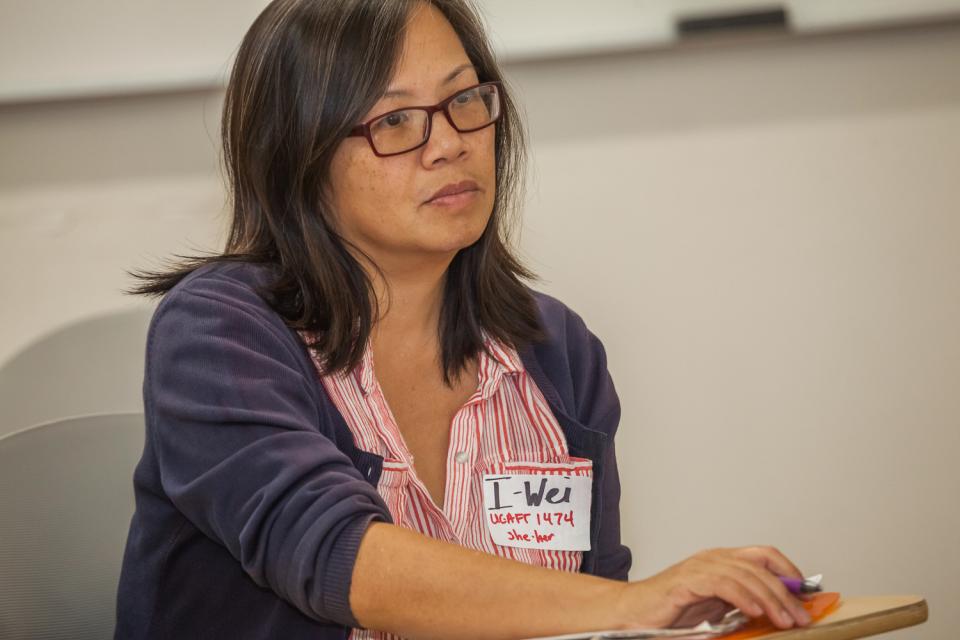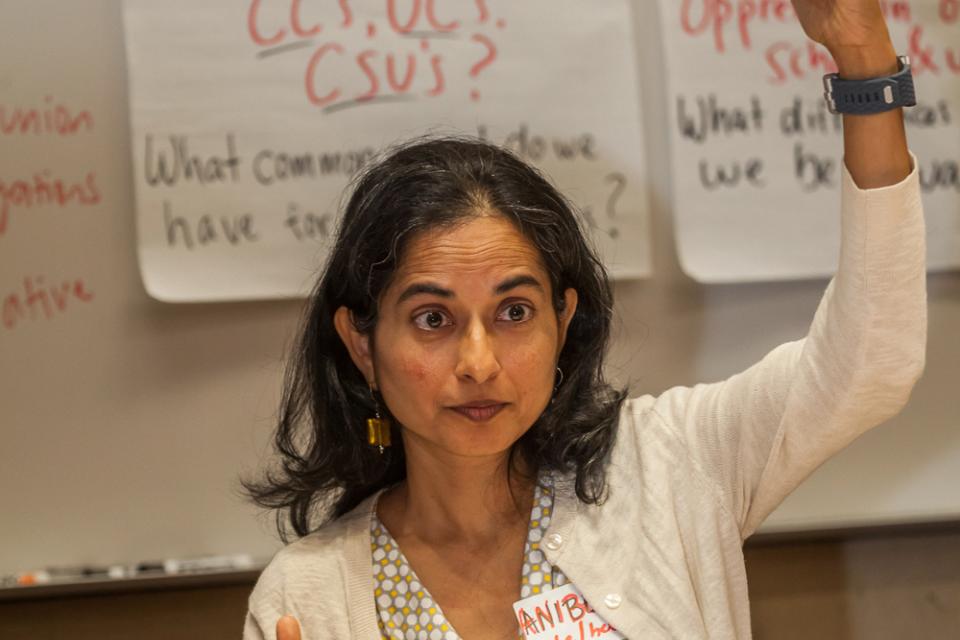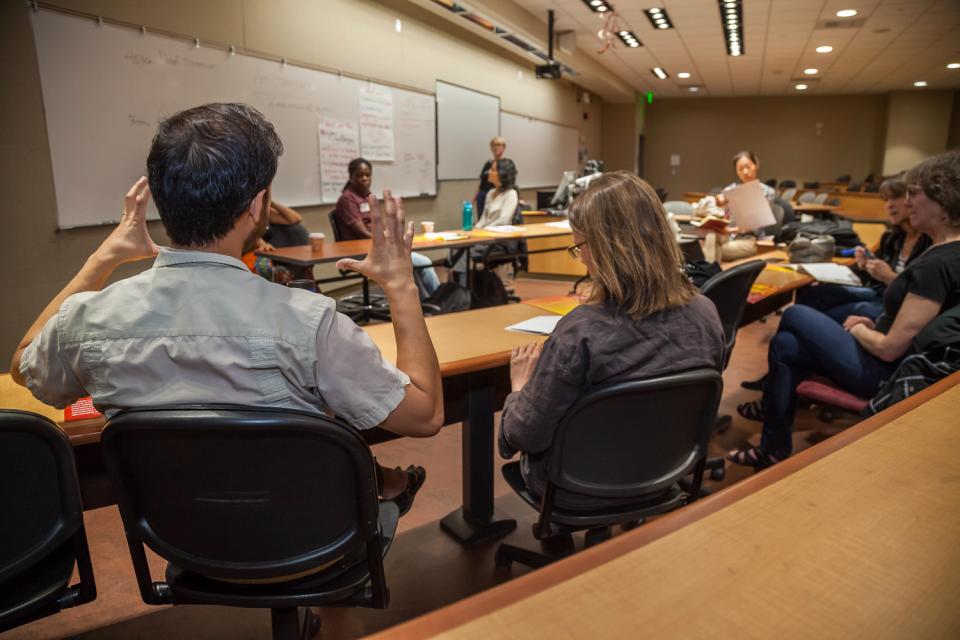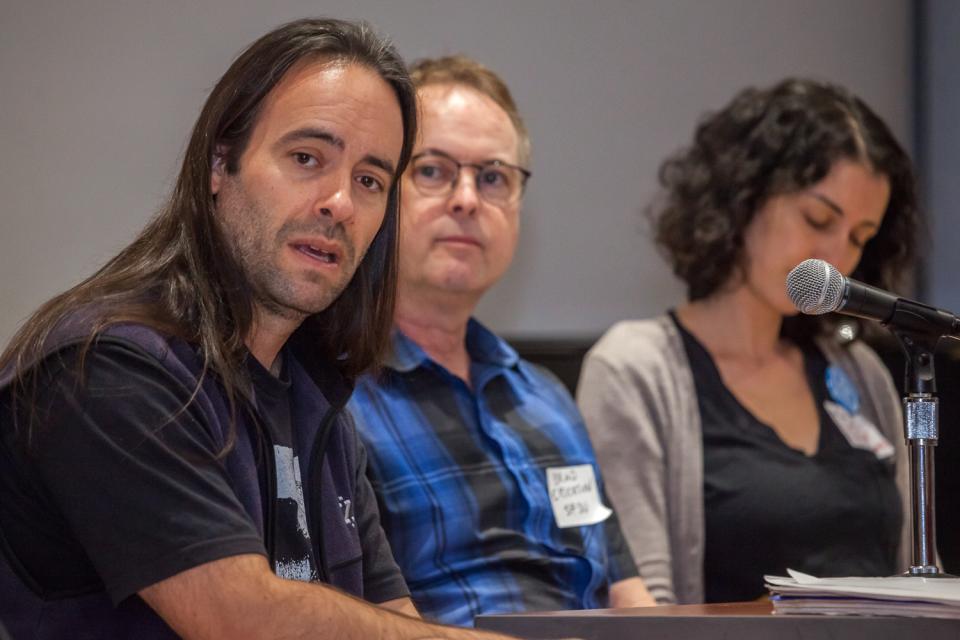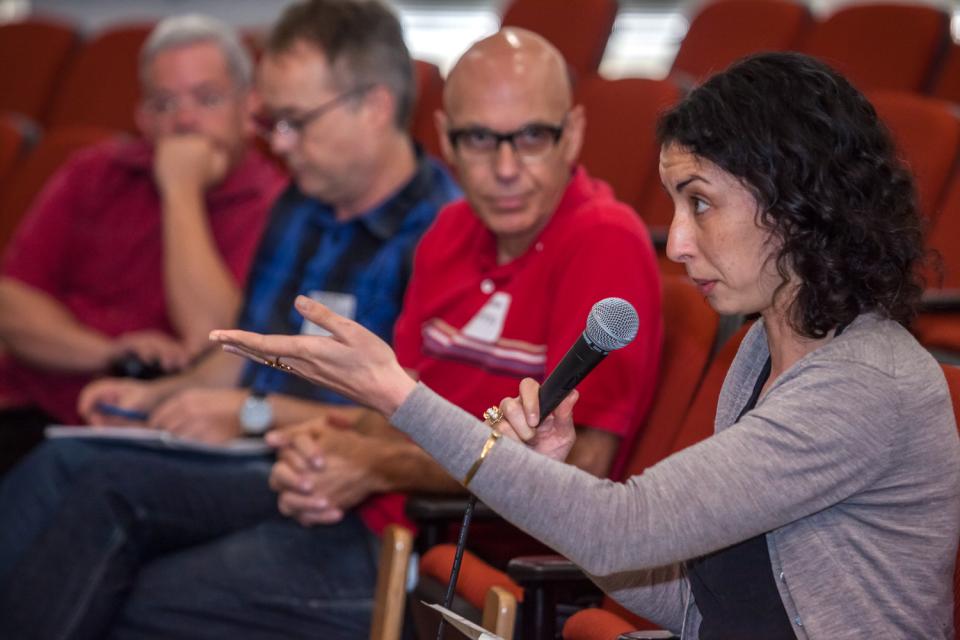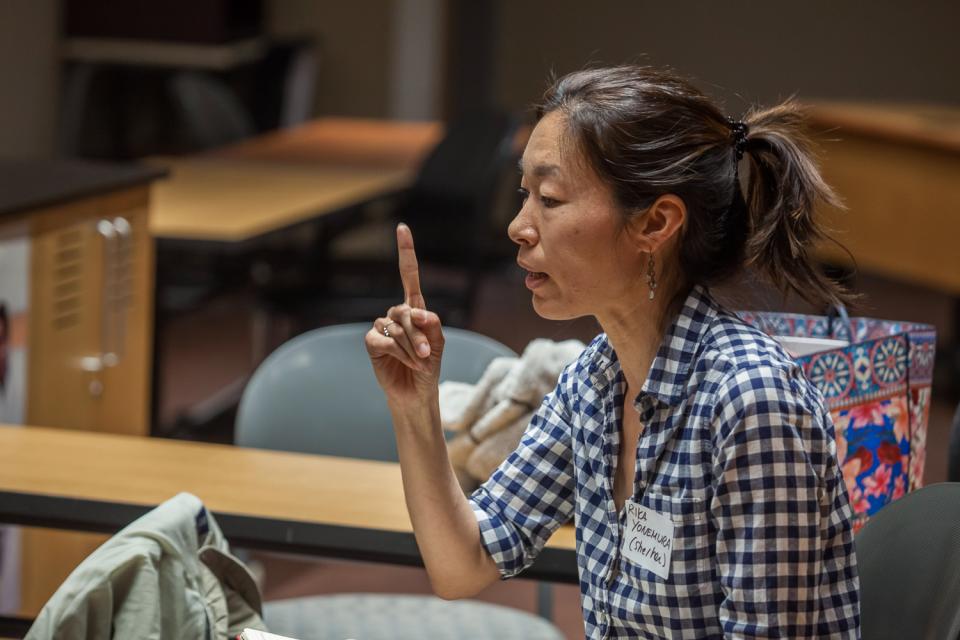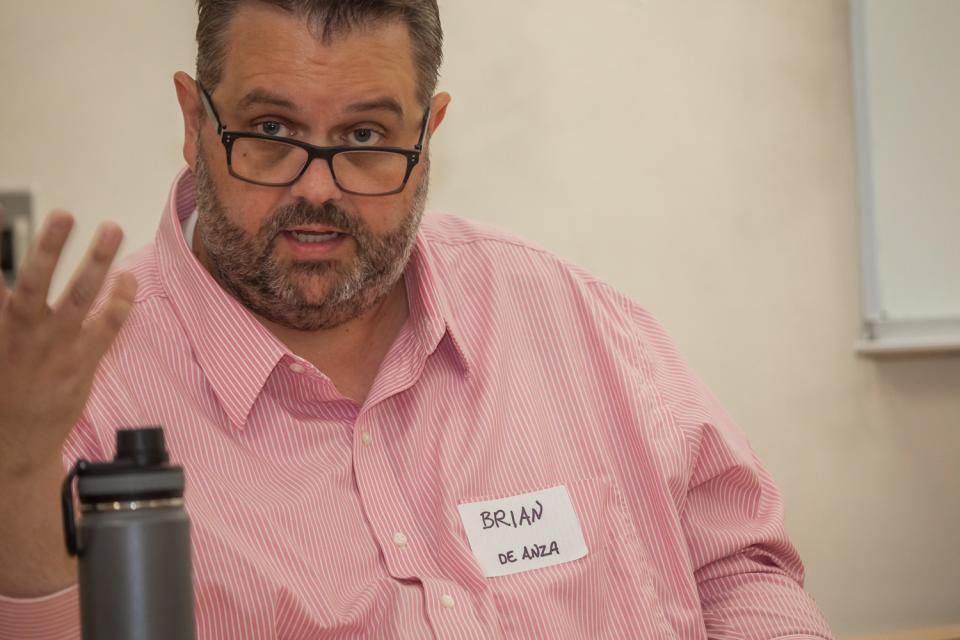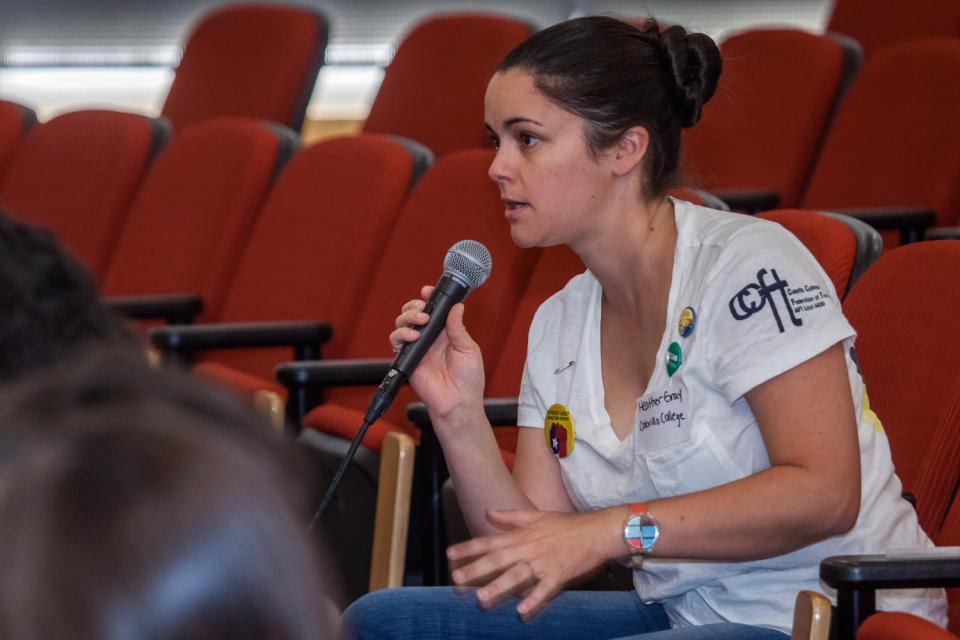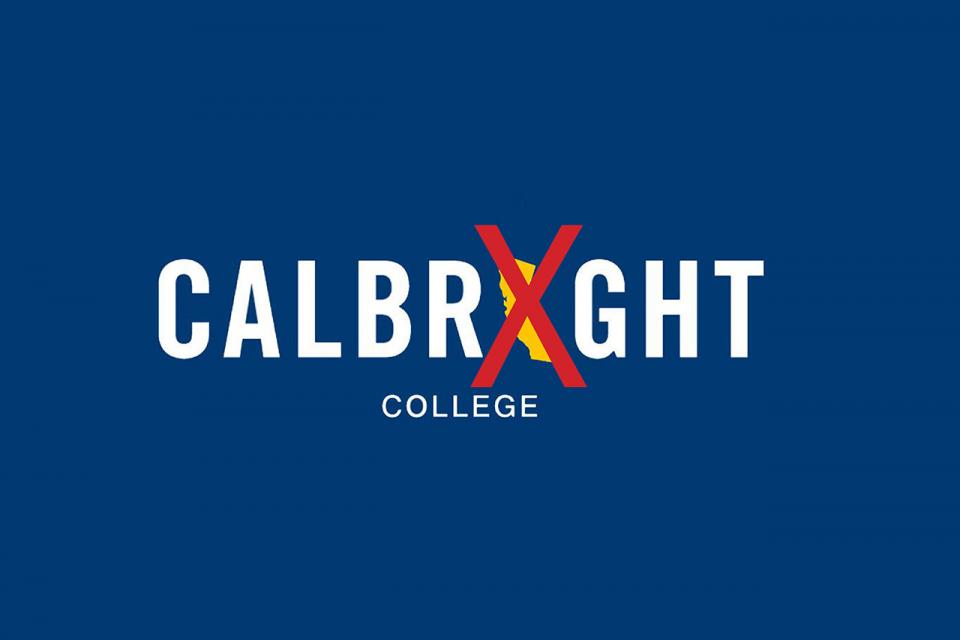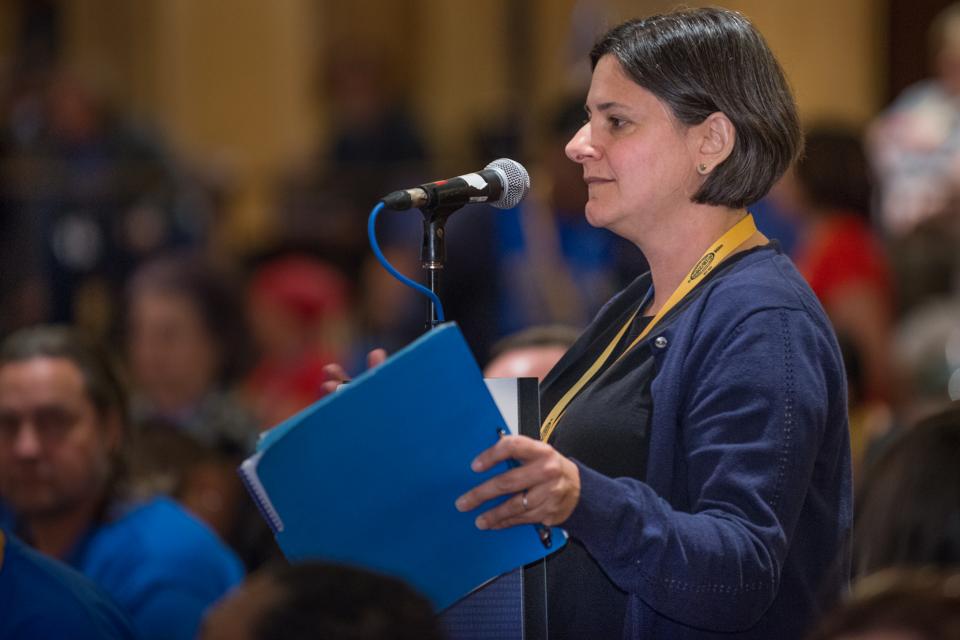Topic: Education Issues
Allan Hancock College teachers and the ‘new normal’
Union presidents surveys part-time faculty for newspaper column
By Mark James Miller, Part-Time Faculty Association of Allan Hancock College
“I miss the face-to-face contact.”
“Something is missing.”
“I miss being with my students.”
As Hancock College’s part-time instructors adapt to the “new normal” brought on by the coronavirus, one theme is constant: With all classes now being taught remotely, they miss being in the classroom with their students.
Part-time faculty face the travails of remote teaching
Stories of teaching from home during the pandemic
Within the span of just two weeks in early March, California Community Colleges, along with the rest of American higher education, were forced into the perhaps the largest and most radical pedagogical shift in its history.
Nearly 300 classified employees have become teachers, 2000 in pipeline
Update: Classified Employee Teacher Credentialing Program
An innovative state program has helped transform nearly 300 classified employees into credentialed teachers, with about 2,000 more staff in the pipeline, according to a report from the Commission on Teacher Credentialing.
The changeover at Allan Hancock College
Challenges and rewards of teaching online
By Mark James Miller
Even before Gov. Gavin Newsom’s shelter-at-home order, Allan Hancock College was gearing up to meet the challenges the COVID-19 virus presents to an institution of higher learning.
For faculty and students, this new normal brings with it many issues regarding how best to continue the mission of education — providing the students with the highest quality of instruction — while trying to remain free of the virus and maintain social distancing.
What does the overnight transition to “remote learning” mean?
For classroom faculty with traditionally scheduled on-campus classes
Note: This helpful article was written for a local community college audience, but many of the principles apply to all of higher education as well as K-12 education.
By Jim Mahler, President, AFT Guild, Local 1931, San Diego and Grossmont-Cuyamaca Community Colleges
Has Calbright lost its legislative support?
Senators take online college to task in February 13 hearing
It may have taken over two years, but the Calbright online community college has apparently lost any support it might have enjoyed in the state Legislature when the CFT first warned about the potential for failure. In December 2017, Jim Mahler, president of the CFT Community College Council, sent a seminal letter to Gov. Jerry Brown, Calbright’s main promoter, pointing out key flaws in its proposed structure.
Special education in crisis
CFT SPECIAL REPORT
Marcela Chagoya, a special education teacher in Los Angeles and chair of the CFT Special Education Committee, has been teaching at the same middle school for 21 years. And she’s never seen special education in such a bad state.
“First and foremost, it’s the elimination of programs,” she said. “Districts seem to think it’s one size fits all or fits most when it comes to special ed.”
CFT leading voice of opposition at Calbright hearing
Community college faculty speak out at February 13 Senate hearing
Community college faculty mobilized on February 13 to let the state Legislature know that they want the enormous resources wasted on the Calbright online community college project redirected to the needs of the existing, underfunded campuses around the state. These campuses serve tens of thousands of students, while this one project has absorbed $120 million for fewer than 500 students.
Finding “common ground” in higher education
Campus Equity Week conference brings together contingent faculty from all higher ed systems
Members, officers, and activists from higher education unions throughout California came together for a full day during Campus Equity Week to chart a strategy for defending public higher education. They denounced especially the way education institutions, under corporate pressure, increasingly rely on contingent instructors while treating them as outsiders.
What I learned in my research of the “Involuntary Adjunct”
By Bobbi-Lee Smart, Cerritos Faculty Federation
My dissertation research focused on the perceptions of the impact of adjuncts on community college campuses in Southern California. I specifically wanted to understand the reality of involuntary adjuncts — those whose who want full-time tenure track jobs, couldn’t get a position, so worked as “full-time” adjuncts (those whose adjunct work is the majority or entirety of their income).
Grassroots effort leads to historic charter school reform
On Thursday, October 3, Governor Gavin Newsom signed AB 1505, a historic charter school reform bill that is essential to ensuring charter schools are accountable to local communities and all California students. The new law follows months of incredible organizing and weeks of intense negotiations, during which CFT leaders, members, and staff have stood with fellow educators, school workers, parents, and students to push for reform.
CFT takes bold next step in opposition to statewide online community college
Union to sue CalBright for violations of Education Code
Duplicating existing programs. Diverting taxpayer resources. Recruiting students from other districts. Not meeting critical deadlines. Lack of input from faculty stakeholders. Lack of transparency.
These are some of the reasons leaders from the CFT’s Community College Council strongly oppose the state’s new all online community college, now doing business as “Calbright,” which they say was created to fill a need that doesn’t exist.
How American education has changed since “Leave it to Beaver”
Tracking diversity and achievement in our schools since 1960
By John Perez, President, Council of Retired Members
In 1960 America was a very different place. Father Knows Best was ending a seven-year run, but we were still watching Leave It to Beaver. Women earned only 63 percent as much as men for the same job. Teachers were considered “tall children,” better seen than heard.
CFT calls out critical problems in launch of online college
On Monday, July 15, CFT President Jeff Freitas testified before the Board of Trustees of CalBright, California’s new online-only community college, sharing CFT’s continuing concerns with the launch of the college.
During his testimony, Freitas detailed several key areas that the online college has failed to meet its obligations and the law. Due to the serious nature of the violations, CFT is considering all legal options should the college not change course.
State Charter School Task Force makes recommendations
Superintendent of Pubic Instruction releases much-anticipated report
State Superintendent of Public Instruction Tony Thurmond released the much-anticipated Charter Task Force Report on June 7, ahead of the July 1 deadline.
The report’s central focus is twofold: the fiscal impact that charter schools have on traditional public schools and the inconsistencies in how charter schools are authorized throughout the state. Recommendations were made to alleviate concerns in these areas and provide specific ways to address fiscal impact and authorization challenges.
Spotlight on transportation services
Jobs returned when contracting out fails, drivers get more training
A recent video that went viral on social media showed a bus driver being attacked by angry parents in St. Louis. Bernard Benson knows how parents can lose their tempers. He has been driving school buses in the San Joaquin Valley for six years.
“A detour makes a driver late and parents get mad because of the delay. It happens all the time. It goes with the territory,” he said, adding, “Most of the time we’re looked at like the good guys because we get kids to and from school.”
Delegates reaffirm support for part-time faculty voice in shared governance
While the issues of pay inequity, the lack of job security, and access to health benefits are major challenges that plague part-time faculty —collegiality, inclusion, and connection with their campuses and fellow faculty are also important for a part-time faculty member’s long-term involvement with a particular institution.
Key to increasing adjunct involvement and connection in the California community colleges is increasing both the opportunities for and compensation of part-time faculty participation in shared governance.
Momentum growing for charter school reform
On February 25, CFT joined fellow educator and school worker unions, the NAACP, and several concerned state lawmakers to announce proposed legislation that would fix the laws governing charter schools in California. The legislation, Assembly Bills 1505, 1506, 1507, and 1508, would ensure charter schools were accountable to local communities and neighborhood schools.
Tri-National Conference: Top-down educational reforms endanger public schools
By Sarah Ringler, Pajaro Valley Federation of Teachers, Retiree Chapter
Evidence shows that teachers are stressed. A 2017 survey in British Columbia found that two-thirds of teachers felt “stressed and emotionally exhausted all, or most of the time. In the United Kingdom, 86 percent of teachers reported increased workplace stress. In the United States, 40 percent of teachers quit teaching within five years, leaving schools with inexperienced teachers who often are assigned to teach the most challenging and vulnerable students.
Students need more mental health support on campus, faculty too
By Mia L. McIver, President UC-AFT
In a recent survey of UC-AFT faculty, members highlighted mental health as an issue that deserves our union’s attention and energy. UC students experiencing psychological challenges often seek support from lecturers and other contract faculty, who are sometimes the only faculty with whom they can develop a one-to-one relationship.


